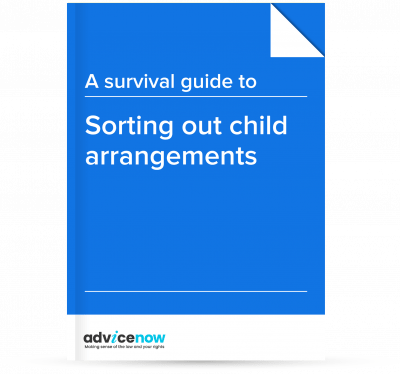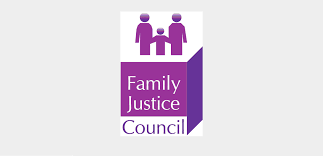Relationship help and support
Relate have lots of information on their website on a range of problems that can arise in relationships and families.
Parenting help and information
Cafcass work with children and their families, and then advise the court on what they consider to be in the best interests of individual children, when parents cannot agree. You can find lots of information and support on how to parent your children well with your ex, during and long after your separation, on their website.
Gingerbread provides expert advice, practical support and other help for single parents. They have lots of useful information on their website, so they ask that you look at that first before calling the helpline.
Single Parent Helpline: 0808 8020925
Mondays: 10am-1pm & 4-6pm
Tuesdays: 10am- 1pm
Wednesdays: 10am-1pm & 5-7pm
Thursdays: 10am-1pm
Fridays: 10am-1pm
The helpline is closed on all public holidays.
Family lives is a national charity providing help and support in all aspects of family life. Their helpline can give information, advice, guidance and support on any aspect of parenting and family life. Family Helpline: 0808 800 2222 Open Monday to Friday 9am-9pm, Saturday and Sunday 10am - 3pm.
OnlyMums offers online support to parents going through divorce or separation. The site has a free web chat facility and email exchange service. OnlyMums and OnlyDads run the Family Law Panel, which links you up to specialist family law solicitors, barristers or mediators near you for a free initial conversation either on the phone or by email to help you work out how to go forward.
OnlyDads offers online support to parents going through divorce or separation. The site has a free web chat facility and email exchange service. OnlyMums and OnlyDads run the Family Law Panel, which links you up to specialist family law solicitors, barristers or mediators near you for a free initial conversation either on the phone or by email to help you work out how to go forward.
MATCH - mothers apart from their children is a charity that offers non-judgemental support and information to mothers apart from their children in a wide variety of circumstances. E-mail: enquiries@matchmothers.org. Helpline: 0800 689 4104 9.30am- 1pm and 7pm-9.30pm.
Help for grandparents seeking contact
Kinship is a charity supporting grandparents and other family members or family friends involved in caring for children when their parents can’t. They also have a useful section if you are a grandparent who is losing or has lost touch with your grandchildren.
Child contact centres
National Association of Child Contact Centres - contact centres are useful when parents are no longer able to communicate. They can provide a neutral place for children to meet the parent who no longer lives at home with them. Helpline: 0845 4500 280 Monday to Friday 9.30-4.30pm.
Domestic violence and abuse
If your ex has been or is being abusive to you there are lots of places you can find out more information and get support. Always dial 999 in an emergency. For support or to discuss your options you can call the 24 hour National Domestic Violence Helpline on 0808 2000 247 or in Wales, Live Fear Free on 0808 80 10 800.
Both help lines are for anyone who is experiencing, or has experienced domestic abuse, or for anyone who is worried about domestic abuse happening to a friend, family member or colleague. It is free, confidential and the number will not show up on a BT telephone bill.
If you are a man and you or your children are affected by domestic violence or abuse you can contact the Men’s Advice Line for free on 0808 801 0327. Open Monday - Friday 10am- 8pm.
Galop runs a national helpline for lesbian, gay, bisexual and trans people experiencing domestic abuse. You can contact them on 0800 999 5428. Open Monday to Friday 10am – 5pm and Wednesday and Thursday 10am – 8pm.
You can find more information and support from:
How to find legal advice
LawWorks can be a good place to start. LawWorks supports a network of over 280 free legal advice clinics that provide initial advice to individuals on various areas of law. Use their search to see if there is a clinic near you that offers family law advice.
Another option might be a law centre where lawyers sometimes give free legal advice on family law issues. Use the Law Centre Network search option to see if there is a law centre near you.
For help finding a family lawyer a good place to start is Resolution where you can find lawyers by searching using your postcode. Resolution members must commit to helping you work out your legal problem in a non-confrontational way. A green tick next to the lawyer’s name tells you that they offer legal aid.
You can also search for a specialist lawyer near you who has been accredited by the Law Society. This means they have a significant amount of experience and expertise and have passed a Law Society assessment - go to Law Society Find a solicitor page. You can also find a family lawyer via the GOV.UK website.
Some family law specialists do extra training in an approach to solving legal problems called collaborative law. If you use this approach, each of you agree to use a collaboratively trained lawyer and have meetings together to try and solve the issues without going to court. You can search for a collaboratively trained lawyer on the Resolution website by choosing ‘Collaborative practitioner’ in the Service offering box.
The Children Advice Centre provides free advice on all areas of English child and family law from the Child Law Advice Line on 0300 330 5480 Monday to Friday 8am - 6pm.
Rights of Women offers free, confidential legal advice for women in England and Wales on family law matters (for example, about domestic violence and abuse, divorce, cohabitation, finances and property on relationship breakdown, parental responsibility and arrangements for children and lesbian parenting).
For women in England and Wales, call: 020 7251 6577. Line open Monday to Thursday, 7pm to 9pm, Fridays 12pm to 2pm (closed on public holidays). For women in London, call: 020 7608 1137. Line open: Mondays 10am - 12pm and 2pm to 4pm, Tuesdays 2pm - 4pm, Wednesdays 2pm - 4pm, Thursdays 10am - 12pm and 2pm to 4pm (closed on public holidays).
Finding Legal Options for Women Survivors, from RCJ Advice in partnership with Rights of Women, offers legal advice for women experiencing domestic abuse face to face, over phone, Facetime and email, as well as help to get an injunction. Call: 020 3745 7707 between 9am-5pm or email FLOWS@rcjadvice.org.uk.
Another way to get legal advice is to speak to a barrister who is qualified to represent members of the public directly (without a solicitor being involved). There are limits on what a barrister can do outside of representation at court but it is often a cheaper option if you just want to get some advice rather than have a solicitor to negotiate on your behalf. The details of appropriately qualified barristers and an explanation of the way the system works can be found on the Bar Council’s website. Don’t be afraid to phone around to compare prices or see if you can find someone who will give you the first appointment for free.
How to find a family mediator
If you are looking for a family mediator you could ask friends and family for a recommendation or your solicitor, if you have one. It is a good idea to check any recommendations using the family mediator finder service on the Family Mediation Council website. It is fine to phone around, ask how much they charge and compare prices. For more useful information on mediation as a process have a look at A survival guide to family mediation.
Help at court or help with a court hearing by phone or by video call
Support Through Court supports people going through the court process without a lawyer. Volunteers offer a free and confidential service at some court buildings. You can look at their website to see if they have an office at your local court. The volunteers aim to help you manage your own case yourself. They cannot give legal advice or act on your behalf, but can offer practical help such as going to your hearing with you and supporting you with your forms. They can also help you if your hearing is by video or phone, by talking you through the process and sometimes joining the hearing too. They run a free national helpline 03000 810 006, open Monday to Friday 9.30am - 4.30pm. This is a good place to start for information on what they can do to help you.









